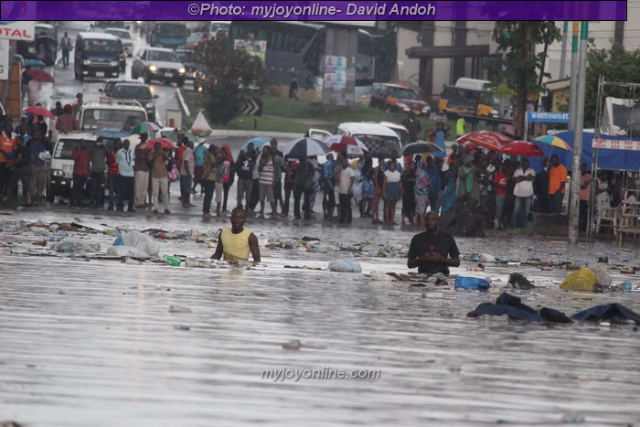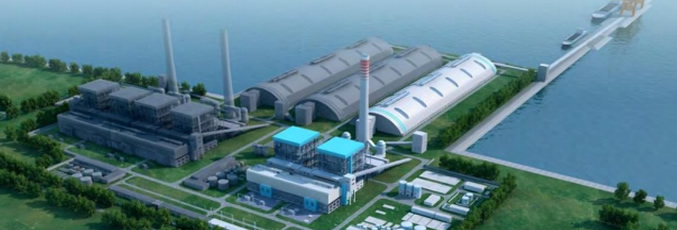Heavy rainfalls in Accra, Ghana during the past week, induced 10 fatalities, injuries and destroyed properties. The survival of vulnerable communities remains high priority as the country’s government urges citizens to move toward higher ground away from flooded areas so as to avert further fatalities.
The months of May and June are known to be the most rainy months and yet as a direct result of climate change the seasons and temperatures in Ghana have become less predictable. This phenomenon has presented farmers, communities and households with an additional challenge that negatively impacts their livelihoods. The country’s economy is highly dependent on climate sensitive sectors such as health, energy, agriculture, water resources, land, fisheries and forestry. Climate change will have unfavorable effects on crops and food production leading to an increase in food prices.
Government and business seem to regard coal as a low-cost reliable source of energy. Ghana has adopted an aggressive coal policy with aims of being a “net exporter of electricity in the Economic Community of West Africa (ECOWAS) sub region”.
It’s a tragedy that amidst clear and present evidence of the impacts of climate change on Ghanaian communities, the Volta River Authority (VRA) alongside its partners, Shenzhen Energy Group of China, through the China African Development Fund, suppliers Glencore Xstrata in South Africa together with Anglo American in Columbia, continue their plans for the construction of a “Supercritical Coal Powered Fire Plant” in Aboano, located in the Ekumfi District (the term “supercritical” is used to describe power plants requiring less coal per Megawatt/Hour, also misleadingly described as “clean-coal”). With an estimated cost of $1.5 billion, this coal plant would be the first in Ghana, setting a dangerous precedent for new coal plant development in the country.
Ekumfi area has already been grappling with water scarcity yet the VRA has license to access and utilise water from the ocean to use for the cooling processes of the thermal electric power systems. VRA has confirmed this statement via various news outlets on March 21st 2016.
This expensive project will trigger a knock on effect on the quality and quantity of usable water for the region, which was selected as “the ideal location” for the power plant. The irreversible toxicity of the intrusion of seawater laced with harmful chemical spillage from mining companies, would make its way into river bodies and ultimately into households.
350Africa, through G-ROC (Ghana Reducing Our Carbon), opposes the construction of this power plant. Long term environmental, socio -economic and health hazards will be derived from this expansive project over the 25 year period that it is aimed to be in operation, beginning April 2017. Ghana can find itself locked into dangerous coal addiction for generations.
The impacts of coal mining on water, food security, the environment, health and wellbeing of communities fall into an area of mining policy and regulation that the government of Ghana must not ignore.
Ghana has the resources and potential to employ sustainable options in averting further energy crises, future climate disasters and sparing the lives of innocent people. In May 2015, the Government of Ghana vowed to invest $230 million in its Renewable Energy Programme. The investment will go towards four major project areas which include measures to deploy renewable energy, utility upscale of solar and wind power generation as well as technical assistance.
Ghana’s energy demand is on a rise. The dependency on coal as the only viable means to modernising is an argument that can no longer be advocated. Globally the demand for coal is on a decline as it is proving to be non profitable in the long haul. Civil society, community members must be made aware of the fact that coal mining is not a viable answer to this crises.
Coal is hazardous to the environment. The inimical health impacts people will be exposed to, must be avoided at all cost. 350Ghana-G-ROC, will continue to put pressure on the government to escalate the push towards renewables and to put a halt on all future coal projects.
[Written by Lerato Letebele]
###

